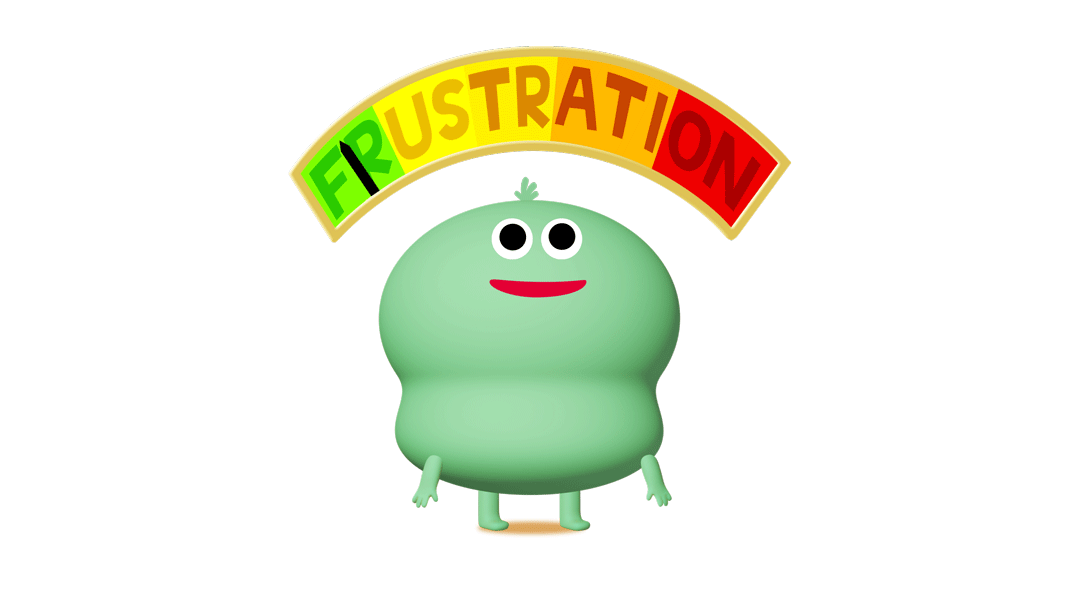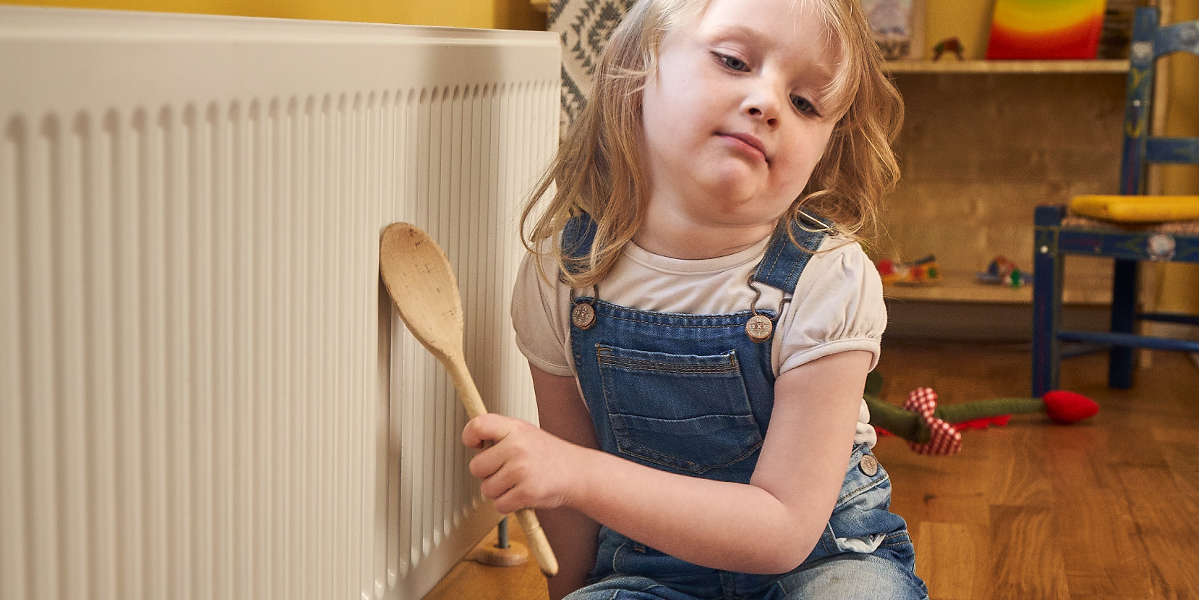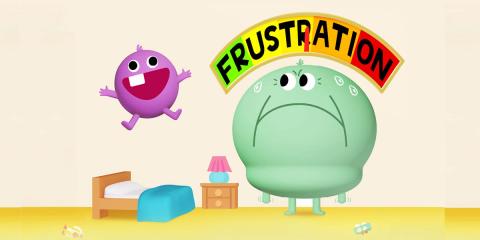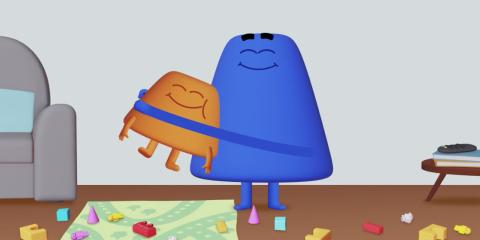Being a parent can be wonderful one minute – but draining and frustrating the next. Whether the kids are fighting over their toys, crying their heart out because they can’t wear pyjamas to school, or having huffs and puffs over homework, it can sometimes be a struggle to keep your cool.
We all have moments when our kids press our buttons – we all know losing your temper and reacting angrily doesn’t help, so what can we do? Check out our top tips for dealing with difficult behaviour here.
Why is my child misbehaving?
All children misbehave at times – it’s just a normal part of growing up. As they get older, kids test out rules and boundaries.
How they misbehave is different for every child – your 4 year old may suddenly decide they won’t wear shoes to nursery. Your 8 year old may start “secretly” staying up later than their bedtime.
Sometimes we also forget that children don’t know the “unwritten” rules, so they may not even know they’re being naughty. They might not know that it’s OK to run around at home, but not at Granny’s house – so you need to spell it out for them.
What can I do when my child is starting to misbehave?
The way that you respond when your kid is acting up makes all the difference to whether they’re likely to do it again. Remember, you are the biggest influence on your child and the way you react in these situations is also helping them learn how to manage their emotions and shape their future behaviour.
Staying calm and being the one in control makes it easier for them to listen to you and take on board what you’re saying – and makes for a happier household. It can also help to listen to their point of view so you can sort it out if there’s been a misunderstanding. If you lose your temper, the situation can get out of hand quickly, and your child may be more likely to lash out later on.
There is also a law in Scotland which means it's illegal to use any form of physical punishment on your child. You can find more information on this law here.
Top tips for dealing with difficult behaviour
Tip #1: If they’re acting up: Stop. Breathe. React calmly.
When your child is doing something naughty, take a quick moment to do these three things: stop, take a moment to breathe, and then react calmly to what they’re doing.
Tip #2: Talk to them about it in a calm voice
After you’ve taken a few moments to breathe, talk to them in a quiet and calm voice about it. It can help to get down to their level so they can clearly see your face and read your expressions, and vice versa.
Tip #3: Make sure your child knows what the rules are
If your child knows what the rules are, it’s more likely they’ll follow them. Instead of saying: “Don’t be naughty”, it helps to be specific: “When we go to Granny’s flat, we’re polite – we try not to shout, and we don’t run around inside”.
Tip #4: Explain clearly what happens when your child misbehaves
If your child has done something wrong, choose a consequence that fits the situation. For example, if they’re arguing over a toy, tell them the toy’s going to be taken away unless they stop arguing. If they continue arguing, take it away. Explain why you are taking the toy away and tell them how long before they get it back. Stick to what you said, and when the agreed time has passed give them back the toy, so they can show you they can behave in the way you want.
Tip #5: Try not to give in to your child “just this once”
We’ve all been there – you see a tantrum coming from a mile away, and you just don’t feel like you can deal with it today. So you give in just this once to have a bit of peace.
The problem is that children are clever wee things, and they learn that if they misbehave, you’ll give in and they get away with it every time. Which just means more tantrums and more stress for you! Try to stay strong and tell your child that you won’t change your mind, no matter how badly they behave. If you’re consistent, they’ll learn that they won’t get their way, and it’s pointless to keep acting up.
Tip #6: Focus on the behaviour you want to change, not the child
Talk to your child about what you want them to do (e.g. tidy their toys). Rather than saying something like “you’re so untidy and lazy”, you could say, “when you don’t tidy away your toys, it means I have to do it and then I have less time to play with you.”
Your child may also be more likely to misbehave in other areas if they’re hearing that they’re “bad” or “lazy”, such as not getting up in time for school. Save yourself a headache, and just talk about what you want to change.
Sometimes we can fall into the trap of comparing our child to others, saying things like “your sister is so good at tidying up – why can’t you be like her?”. Try not to do this – all children are different, and comparing them to a sibling or friend can build resentment.
Tip #7: If you’re at the end of your tether, take 5 to cool off
If you’re really at the end of your tether, make sure your child is somewhere safe, and give yourself 5 minutes to calm down.
You could get yourself a cup of tea, put in some headphones and listen to some music, or ring a friend. Do whatever you need to get a wee bit of time to de-stress and feel like you’re calm enough to deal with the situation. Our page on keeping calm with your child has more advice.
Tip #8: Praise your child when they’re being good

Sometimes your child misbehaves because they’ve figured out it’s a good way to get your attention. If you’re giving them lots of attention when they’re doing something you love, your child is more likely to do it again – and you’ll have more fun times together.
For example, “I really liked how you were playing with your trucks with Julie while I was talking to Uncle Neil on the phone. It was really helpful for me, and I could tell that Julie really loved it. Thank you so much for doing that”.
Tip #9: Make spending quality time together part of your routine
When the frustrations of parenting and life in general get on top of us, it can be easy to get stuck in a rut where it feels like we’re always telling our kids off. Creating a routine where you do things like playing and reading with your child means you’ll get more of those moments of joy that make being a parent all worth it. Plus, by doing things like reading a book before bed, you’ll help them to get off to sleep more easily – so everyone wins!
Tip #10: Be affectionate with your child
Whether it’s a hug, a kiss or a wink, every time you’re affectionate with your child, they feel cared for, loved, and it builds their confidence. If you’re loving and kind, they’ll want to keep it that way, so they’re less likely to be naughty.
Tip #11: Look after yourself
Staying calm is easier said than done when you’re juggling a million and one things. But it’s so much easier to take care of your child when you’re taking care of yourself too. Try to make some space once a week for something you like that you enjoy and helps you unwind. Our page on wellbeing for parents has lots of tips that can help.
What the parents say
"Whether it’s dinner time, or bed time – sometimes it all feels like an uphill battle. When it gets really bad, I’ll just let them have their little say, then leave the room for 5 minutes until I’ve calmed down. After I’ve had a bit of time to clear my head, I can even find it a bit funny when I need to help them go look for their socks for the umpteenth time.”
“It got to a point where I felt like I was just shouting at him all the time: “Do this, don’t do this, stop that”. I realised we never had any time where we just had fun together any more because I’d just been in survival mode. So I made a real effort every day to spend some time with him – reading a book at bed, or playing football in the park. I’ve found that he’s acting up less now. I feel less stressed and look forward to our “special time”. It’s also a bit easier to be patient with him when he’s having a strop. We can talk about it and have a cuddle afterwards.”
“I thought we were way past the terrible 2s, but then Hannah started having these big tantrums again when she was 4. I just felt mortified and like everyone was judging me when we were out and about. I found that talking to other parents about how they dealt with it really helped. It made me feel like I wasn’t alone, and helped me to understand that it’s actually normal.”
What the professionals say
“No matter how old your child is, it’s completely normal for them to misbehave at times. It doesn’t mean anything is wrong if your child is doing things like dragging their feet getting ready for school, or playing up before bed time – they’re just being a kid. It can be easier said than done, but it’s really important to learn ways to stop, breathe and stay calm when your child is misbehaving. If you need to, it’s OK to take 5 and come back to deal with your child when you’re in a better frame of mind.”
Further support
You can find more advice for managing family arguments on the Scottish Centre for Conflict Resolution website.
Remember that you’re not alone – all of us struggle from time to time. Talk to someone you trust, like a partner, friend, family member, health visitor or your GP. If you don’t want to talk to someone you know, you can also chat to Children First's support line.
It is harder to stay calm if you are facing lots of pressures. You might be worried about other things, like health or finances. You can search for available support in our Family Support Directory.

Free Togetherness Online Learning Pathways courses for parents and carers
Life as a parent can be busy. Sometimes things can come up that you might want to explore more, to help you think about how you can best support your child. The Togetherness Online Learning Pathways courses cover a range of topics and ages from pregnancy to 19+ years. The pathways take parents on a learning journey to increase understanding about childhood development, behaviour and wellbeing. This helps build connected relationships, resilience and supports families to thrive.
You can find out more at Togetherness and access the courses for free using the code TARTAN.
Being a parent is the best job in the world, but it can also be one of the most stressful. There will be days when it all feels a little too much. To help you manage the challenges ahead, Parent Club has some tips on coping with being a parent and keeping calm with your wee one so you can build a rewarding relationship together.

 Activities & Play
Activities & Play Behaviour
Behaviour Childcare
Childcare Development & Growing Up
Development & Growing Up Family, Friends & Relationships
Family, Friends & Relationships Feeding Your Baby
Feeding Your Baby Food & Eating
Food & Eating Health & Safety
Health & Safety Mental Health & Wellbeing
Mental Health & Wellbeing Money & Work
Money & Work Online Behaviour & Safety
Online Behaviour & Safety Pregnancy & First Days
Pregnancy & First Days School & Education
School & Education Sleep
Sleep









 Family, Friends & Relationships
Family, Friends & Relationships
 Mental Health & Wellbeing
Mental Health & Wellbeing